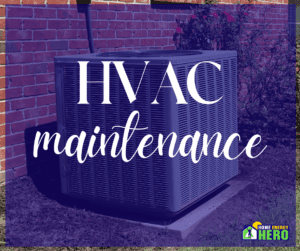
The importance of regular HVAC maintenance is crucial for keeping your system running efficiently and saving on energy costs. In this blog, we’ll highlight the numerous benefits of routine maintenance, including improved system performance, extended equipment lifespan, and lower utility bills. Additionally, we’ll provide practical tips for homeowners on how to schedule and perform basic upkeep to ensure their HVAC systems operate at peak efficiency all year round.
Benefits of regular HVAC Maintenance
Regular HVAC maintenance offers a multitude of benefits that go beyond just comfort. By ensuring your system is routinely checked and serviced, you can significantly improve its performance and efficiency, leading to lower energy bills and a reduced environmental footprint. Maintenance helps identify and address minor issues before they escalate into costly repairs or complete system failures, extending the lifespan of your equipment. Additionally, a well-maintained HVAC system provides better air quality, creating a healthier living environment for you and your family. Investing in regular maintenance is a smart move that pays off in both the short and long term.
How it Saves Energy
When your system is well-maintained, it operates more efficiently, using less energy to heat or cool your home. Maintenance tasks such as cleaning or replacing filters, checking and sealing ductwork, and ensuring optimal refrigerant levels all contribute to a smoother, more efficient operation. This reduces the workload on your HVAC system, preventing it from overexerting and consuming excess energy. By keeping your system in peak condition, you not only lower your energy consumption but also contribute to a more sustainable and environmentally friendly home.
Tips for Homeowners
To ensure your HVAC system operates at peak efficiency year-round, homeowners can perform several basic upkeep tasks. Start by regularly cleaning or replacing air filters, typically every one to three months, to maintain optimal airflow and indoor air quality. Inspect and clean the outdoor unit, removing any debris or vegetation that could obstruct airflow. Check and seal any leaks in ductwork to prevent energy loss. Additionally, ensure that the thermostat is functioning correctly and set to appropriate temperatures. Scheduling professional maintenance at least twice a year, ideally in spring and fall, will also help identify and address any potential issues early, keeping your system running smoothly and efficiently.
Conclusion
By performing basic upkeep and scheduling professional check-ups, you can maintain peak performance and enjoy a comfortable, healthy home environment. To take your energy-saving efforts to the next level, consider getting a home energy audit. A comprehensive audit will provide you with valuable insights into your home’s overall energy usage and highlight areas for improvement. Investing in a home energy audit is a proactive step towards a more efficient, cost-effective, and sustainable household.
If you’re ready to schedule a home energy audit, please contact us.
